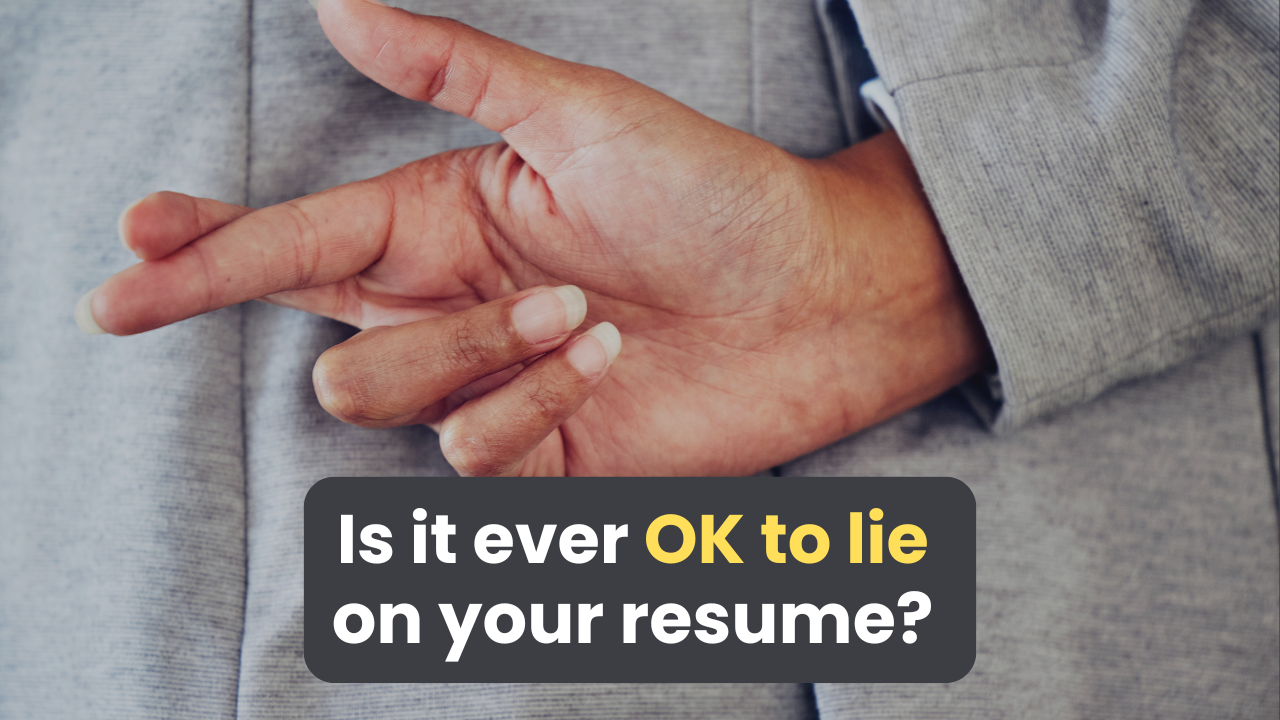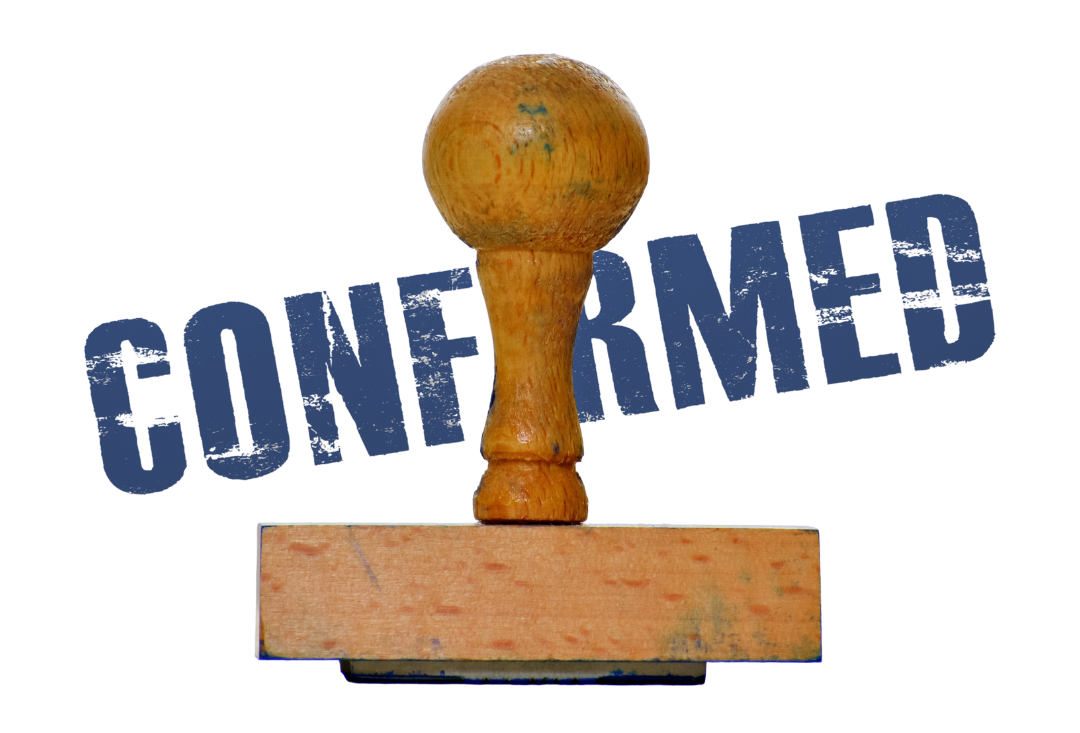
It's a big risk to lie on your resume. Is it ever worth it?
A competitive job market might tempt you to fib a bit about your experience, exaggerate your skills, or maybe even concoct a downright lie on your resume about that degree you never actually finished.
I mean, you have to look good and everyone does it, right? Or do they?
It seems like it should be pretty apparent that lying is a bad idea, particularly because we live in the information era where online research, massive databases and background checks have access to pretty much everything.
That means it’s fairly easy to uncover outright lies, and if that happens, your reputation and career could be ruined.
"They'll never know" is a terrible job search strategy.
Is it common to lie on your resume? 
Apparently it is.
In 2013, a report by Business Insider revealed that 31% of people in their study say they've lied on their resume. (Interestingly, 13% admitted that they lied when answering the question about lying, so there's an interesting margin of error there.)
Ten years later in 2023, Forbes published an article saying that a shocking 70% of people admit to lying on their resume in some way and 37% say they do it regularly.
I've come to believe that most people are doing their best to be honest in how they tell their story, but have seen some misrepresentations cost people a job.
What do people lie about? And where do you draw the line?
Things people are most likely to lie about:

- Claiming degrees, certifications or education they don’t have
- Omitting roles or education and degrees they think make them ‘overqualified’
- Fabricating jobs they never held, often at companies they never worked for
- Claiming they worked for a big-name company that acquired a company they worked for in the past
- Fudging dates, or using only years, and not months, to camouflage gaps
- Lying about language abilities or special expertise
- Listing technical skills they don't currently have
- Using a fake address or location in order to appear local to a job
- Exaggerating or hiding their titles or the scope of their past jobs, to look more or less experienced
Some very high-profile people have been caught in resume lies.
- The acting head of the Southern Baptist Convention’s Executive Committee resigned in 2023 when it was discovered he had lied about having three separate degrees.
- Also famously in 2023, elected House Representative George Santos lied about a just about everything, including having attended Baruch College and NYU and fabricated jobs at Citigroup and Goldman Sachs. (He referred to these lies as “embellishing his resume," which is now actually embellished with prison time.)
- In 2019, Mina Chang, a senior Trump administration officer, was found to have lied about graduating from Harvard, embellished her work experience, faked a Time Magazine cover, and invented a role on a U.N. panel.

- Wal-Mart’s Chief Spokesman David Tovar resigned in 2016 when it was discovered that he’d lied about having earned a degree 20 years earlier.
- Ex-Yahoo CEO Scott Thompson resigned when it was discovered he did not have the Computer Science degree he listed when he was hired.
- MIT’s Dean of Admissions Marilee Jones confessed in 2006 that she’d lied about having three degrees at different prestigious colleges when she was hired in 1979, and that she actually had none. Despite a long and successful career, she had to resign.
- In 2001, Notre Dame football coach George O’Leary lasted just five days before it was revealed he’d lied about his degree and that he’d never played a game of college ball.

Each of these cautionary tales shows that lying could lead directly to losing your job.
Admittedly, many of these are from earlier times when big data was not a thing and you could get away with more. But today, almost everything you did – and didn’t do – is available online.
It's easy and inexpensive to do background checks, along with increased security, and companies are more careful about making sure who they are hiring.
Of course, there is lying and then there is lying.
This is where it can get a little blurry, because not all lies are the same.
Some lies are complete fabrications, like claiming a degree when you never even attended college. These are clearly lies.
Others are more about selective omissions or modifications.
Some people consider it lying when you use only years for dates to camoflage an employment gap, or if you only go back 10 years, or leave off jobs you don't want to talk about or revise your old-fashioned past job title to one that would be more current, or modernizing the name of your degree.
And there is a trend in resumes to eliminate any information not directly pertinent to a specific role.
To me, these aren’t considered lies, though others might not agree, and astute interviewers may see omissions or selective information as yellow flags, so you will need to be ready to explain yourself.
Whatever you do, never lie about the facts.
Outright lying about facts is simply not worth the risk. Fact-checking only takes a minute for a lot of information. 
Expect to gave college degrees confirmed, job titles and employment dates confirmed, and don't be surprised if criminal record and credit rating are part of standard background checks. The higher level the job, the more they confirm.
And, as the MIT admissions director found out, when the lie is about a fact, it doesn’t matter how long it’s been sitting there waiting to be discovered. It’s still a deal breaker.
My advice is that you never lie, not even about little things.
Not just because you risk losing the offer or your job when they find out (although that would should be enough reason) but because of what lying does to you and how you feel about yourself.
 The emotional and physical effects of having to maintain a lie are more than some people expect.
The emotional and physical effects of having to maintain a lie are more than some people expect.
Imagine what it was like for each of the people listed above who worked in a job for years, for decades, knowing that their career was based on a lie.
Sir Walter Scott was spot on when he wrote in the 19th century:
“Oh what a tangled web we weave when first we practice to deceive.”
Knowing that you’ve lied – on your resume, in an interview, to your friend, to your child, anywhere – is usually going to make you feel bad, and some part of you will always stay on alert to being found out.
There is a simple solution. Just own your story and tell it truthfully with a positive spin. 
Tell the truth about every verifiable fact, and then, with subjective information, where experiences depend on the person, tell the story in your own way from your perspective in the most positive way possible.
Prepare to talk about the kinds of things you might wish you could lie about, like getting fired, or being demoted, or not finishing your degree.
By scripting your story and practicing your response, if you are asked about it, you will be prepared to share the truth in a simple way while focusing the silver lining of the experience and why it makes you a better candidate.
And if you think that you wouldn't get hired if you told the truth, then it’s not the right job for you.
Honesty includes not wasting anyone's time if you do not have what they're looking for.
But if you’re certain that it is the right job for you, brainstorm with someone about how you can tell your story with honesty and authenticity, telling the truth in the most positive way.
Not only will you avoid putting your career at risk, but you’ll be happier in the long run because your inner self will never be worried about being found to be a liar.
Are you ready to get your job search on?
Join my mailing list to get updates and notice of new courses and other resources for your job search!
Your email is safe with me. No spam, ever. If you ever get an email you don't want, just click the unsubscribe. I won't be mad, promise.







